BusinessEurope Headlines No. 2017-37
Further reform is needed to boost long-term growth
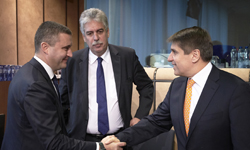 “Businesses across the EU are benefiting from a strengthening EU economy. Our latest forecast for EU growth of 2.3% in 2017 is 0.4 percentage points higher than we expected in spring, with 2.1% growth expected in 2018”, BusinessEurope Director General Markus J. Beyrer said at the Macroeconomic Dialogue (MED) meeting at political level on 6 November 2017. The MED provides a forum for exchanging views between the European Commission, Council, European Central Bank and social partners. Beyrer also stressed that, on the other hand, “with the recovery supported by temporary factors, further reforms at both national and EU level are required to raise long-term growth.” After the meeting, BusinessEurope released its Autumn Economic Outlook, which underlines that the EU's economic recovery is picking up momentum.
“Businesses across the EU are benefiting from a strengthening EU economy. Our latest forecast for EU growth of 2.3% in 2017 is 0.4 percentage points higher than we expected in spring, with 2.1% growth expected in 2018”, BusinessEurope Director General Markus J. Beyrer said at the Macroeconomic Dialogue (MED) meeting at political level on 6 November 2017. The MED provides a forum for exchanging views between the European Commission, Council, European Central Bank and social partners. Beyrer also stressed that, on the other hand, “with the recovery supported by temporary factors, further reforms at both national and EU level are required to raise long-term growth.” After the meeting, BusinessEurope released its Autumn Economic Outlook, which underlines that the EU's economic recovery is picking up momentum.
![]() Contact: Frederik Lange
Contact: Frederik Lange
Economic developments and business environment in South Korea
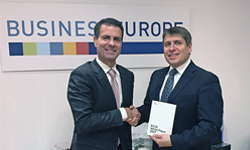 BusinessEurope met a delegation of the European Chamber of Commerce in Korea (ECCK) the 8 November 2017 to discuss the recent political and economic developments in the country and their impact on European business. During the meeting, BusinessEurope Director General Markus J. Beyrer stressed that “the EU-Korea Free Trade Agreement (FTA) has been successful in promoting more trade and investment between the EU and South Korea but we have issues, namely in the regulatory area, that are preventing our relation to fulfil all its potential”. This agreement was the first of a 'new generation' of EU FTAs, as it contains provisions going beyond mere tariff liberalisation and includes rules on eliminating non-tariff barriers, expanding market access for services and featuring a chapter on trade and sustainable development. The 6th anniversary of the provisional application of the EU-South Korea FTA was marked on 1 July 2017. Many of the provisions in the agreement were negotiated almost 10 years ago and it is now time to consider a revision.
BusinessEurope met a delegation of the European Chamber of Commerce in Korea (ECCK) the 8 November 2017 to discuss the recent political and economic developments in the country and their impact on European business. During the meeting, BusinessEurope Director General Markus J. Beyrer stressed that “the EU-Korea Free Trade Agreement (FTA) has been successful in promoting more trade and investment between the EU and South Korea but we have issues, namely in the regulatory area, that are preventing our relation to fulfil all its potential”. This agreement was the first of a 'new generation' of EU FTAs, as it contains provisions going beyond mere tariff liberalisation and includes rules on eliminating non-tariff barriers, expanding market access for services and featuring a chapter on trade and sustainable development. The 6th anniversary of the provisional application of the EU-South Korea FTA was marked on 1 July 2017. Many of the provisions in the agreement were negotiated almost 10 years ago and it is now time to consider a revision.
Contact: Eleonora Catella
Unleash the potential that digital offers for transport and mobility in Europe
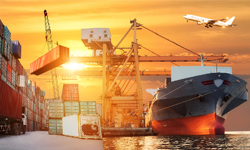 The implementation of digital technologies and Information and Communication Technologies (ICT) tools will make transport in all modes (road, rail, air, inland waterways or sea) and across borders more interoperable, smarter, more predictable and will increase efficiency and reduce costs. This message was passed by BusinessEurope Director General Markus J. Beyrer in a letter to the European Commissioner for Transport Violeta Bulc ahead of the Digital Transport Days that the Directorate-General for Mobility and Transport (DG MOVE) is organising together with the Estonian EU Presidency in Tallinn on 8, 9 and 10 November 2017. The accompanying position paper underlines the great potential for making transport and mobility more efficient and smart through digital solutions. At the same time, BusinessEurope points to the remaining barriers to the further digital transformation of Europe’s transport networks and its modes, such as the lack of interoperability of national systems, investment and critical mass to support big transformations, as well as the underuse of data and digital solutions. Still now, each year in Europe around 33 million paper sheets are needed for 16.5 million transport and logistics vehicles. These remaining obstacles need to be addressed decisively at European and national level and in close cooperation with relevant stakeholders to unleash the great potential that digital offers for mobility in Europe.
The implementation of digital technologies and Information and Communication Technologies (ICT) tools will make transport in all modes (road, rail, air, inland waterways or sea) and across borders more interoperable, smarter, more predictable and will increase efficiency and reduce costs. This message was passed by BusinessEurope Director General Markus J. Beyrer in a letter to the European Commissioner for Transport Violeta Bulc ahead of the Digital Transport Days that the Directorate-General for Mobility and Transport (DG MOVE) is organising together with the Estonian EU Presidency in Tallinn on 8, 9 and 10 November 2017. The accompanying position paper underlines the great potential for making transport and mobility more efficient and smart through digital solutions. At the same time, BusinessEurope points to the remaining barriers to the further digital transformation of Europe’s transport networks and its modes, such as the lack of interoperability of national systems, investment and critical mass to support big transformations, as well as the underuse of data and digital solutions. Still now, each year in Europe around 33 million paper sheets are needed for 16.5 million transport and logistics vehicles. These remaining obstacles need to be addressed decisively at European and national level and in close cooperation with relevant stakeholders to unleash the great potential that digital offers for mobility in Europe.
![]() Contact: Jeroen Hardenbol
Contact: Jeroen Hardenbol
Deepening trade and investment relations between the EU and Latin America
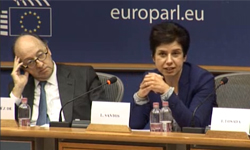 BusinessEurope participated in a high-level seminar organised by the Fundacion EuroAmerica at the European Parliament on 6 November 2017 on ways to foster trade and investment relations between the EU and Latin American countries. “There is a lot of potential, a lot of opportunities for both sides but the time element is crucial: if we are not on the market, others will be”, said Luisa Santos, Director of International relations at BusinessEurope. The EU has already concluded several agreements with Latin American countries and is currently working on the modernisation of the free trade agreements with Mexico and Chile, which is crucial to adjust our relations to new trade and investment challenges. “There are also hopes that after 20 years of negotiations, the EU and Mercosur will finally be able to conclude an ambitious agreement that respects each other’s sensitivities but that also unleashes untapped business opportunities”, Santos added. Both sides need to show strong political will and have the ability to see the bigger picture on how to make our economies more competitive and resilient by promoting further integration and cooperation through trade and investment.
BusinessEurope participated in a high-level seminar organised by the Fundacion EuroAmerica at the European Parliament on 6 November 2017 on ways to foster trade and investment relations between the EU and Latin American countries. “There is a lot of potential, a lot of opportunities for both sides but the time element is crucial: if we are not on the market, others will be”, said Luisa Santos, Director of International relations at BusinessEurope. The EU has already concluded several agreements with Latin American countries and is currently working on the modernisation of the free trade agreements with Mexico and Chile, which is crucial to adjust our relations to new trade and investment challenges. “There are also hopes that after 20 years of negotiations, the EU and Mercosur will finally be able to conclude an ambitious agreement that respects each other’s sensitivities but that also unleashes untapped business opportunities”, Santos added. Both sides need to show strong political will and have the ability to see the bigger picture on how to make our economies more competitive and resilient by promoting further integration and cooperation through trade and investment.
Contact: Luisa Santos
How to support SMEs in the 2020-2027 financial period?
 “Supporting small and medium-sized enterprises (SMEs) competitiveness and access to markets must continue to be present as important components in the future Multiannual Financial Framework (MFF)”, said Daniel Cloquet, BusinessEurope’s Director of Entrepreneurship and SMEs, at an event organised on 6 November 2017 by the SME Category of the European Economic and Social Committee on “How to support SMEs in the 2020-2027 financial period”. Cloquet highlighted that supporting SME research and development and innovation activities, in addition to SME internationalisation, will need special attention, as well as raising the digital competence level of SMEs. He also called for stepping up the efforts to mobilise private investment in SMEs through well-designed EU financial instruments. The EU programme for the Competitiveness of SMEs (COSME) financing models and the European Fund for Strategic Investments (EFSI) model should inspire future EU initiatives in this area. “It is however important to rationalise EU funds. Continued legislative initiatives will be needed to help SMEs reaping the full benefits of the Single Market”, he concluded.
“Supporting small and medium-sized enterprises (SMEs) competitiveness and access to markets must continue to be present as important components in the future Multiannual Financial Framework (MFF)”, said Daniel Cloquet, BusinessEurope’s Director of Entrepreneurship and SMEs, at an event organised on 6 November 2017 by the SME Category of the European Economic and Social Committee on “How to support SMEs in the 2020-2027 financial period”. Cloquet highlighted that supporting SME research and development and innovation activities, in addition to SME internationalisation, will need special attention, as well as raising the digital competence level of SMEs. He also called for stepping up the efforts to mobilise private investment in SMEs through well-designed EU financial instruments. The EU programme for the Competitiveness of SMEs (COSME) financing models and the European Fund for Strategic Investments (EFSI) model should inspire future EU initiatives in this area. “It is however important to rationalise EU funds. Continued legislative initiatives will be needed to help SMEs reaping the full benefits of the Single Market”, he concluded.
![]() Contact: Daniel Cloquet
Contact: Daniel Cloquet
Business expects transparent stakeholder process at COP23
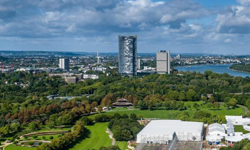 BusinessEurope has created a blog to explain the main issues to be discussed at the Bonn Climate Change Conference (COP23), which started on 6 November and will continue until the 17th. Under the Presidency of Fiji, which has been very open and transparent with stakeholders in its preparations for COP23, the conference gathers climate negotiators from almost 200 countries to discuss urgent steps needed to fight climate change as it was agreed upon at COP21 in Paris in 2015. One of the main aims is to develop the “Paris Rulebook” that will allow governments to implement the Paris Agreement by providing rules and guidelines, for example, how markets under Article 6 can be used for the co-operation between nations to mitigate emissions.
BusinessEurope has created a blog to explain the main issues to be discussed at the Bonn Climate Change Conference (COP23), which started on 6 November and will continue until the 17th. Under the Presidency of Fiji, which has been very open and transparent with stakeholders in its preparations for COP23, the conference gathers climate negotiators from almost 200 countries to discuss urgent steps needed to fight climate change as it was agreed upon at COP21 in Paris in 2015. One of the main aims is to develop the “Paris Rulebook” that will allow governments to implement the Paris Agreement by providing rules and guidelines, for example, how markets under Article 6 can be used for the co-operation between nations to mitigate emissions.
Contact: Leon de Graaf
Mediation has merits but cannot replace consolidated dispute resolution mechanisms
 On the occasion of the European Commission’s Public Consultation on the “prevention and amicable resolution of disputes between investors and public authorities within the Single Market”, BusinessEurope provided its views on the matter via the dedicated questionnaire as well as an accompanying letter, signed by Director General Markus J. Beyrer. BusinessEurope agrees that mediation could potentially be an effective mechanism. However, we consider that it is not a sufficient mechanism for dispute resolution. Mediation is voluntary by nature and requires the good will of both parties to achieve a viable solution. Furthermore, the enforcement of decisions may also present challenges. In other words, access to an effective, neutral and consolidated dispute resolution mechanism will always be necessary. In this context, before considering possible action at EU level, we would like to stress that the Commission should explore the issue further and better showcase the value-added of such an EU-wide framework.
On the occasion of the European Commission’s Public Consultation on the “prevention and amicable resolution of disputes between investors and public authorities within the Single Market”, BusinessEurope provided its views on the matter via the dedicated questionnaire as well as an accompanying letter, signed by Director General Markus J. Beyrer. BusinessEurope agrees that mediation could potentially be an effective mechanism. However, we consider that it is not a sufficient mechanism for dispute resolution. Mediation is voluntary by nature and requires the good will of both parties to achieve a viable solution. Furthermore, the enforcement of decisions may also present challenges. In other words, access to an effective, neutral and consolidated dispute resolution mechanism will always be necessary. In this context, before considering possible action at EU level, we would like to stress that the Commission should explore the issue further and better showcase the value-added of such an EU-wide framework.
![]() Contact: Sofia Bournou
Contact: Sofia Bournou
BusinessEurope’s position on Sustainable Development Chapters in Trade Agreements
 BusinessEurope has adopted a position paper on Sustainable Development Chapters in EU Free Trade Agreements that intends to offer a constructive contribution to the on-going discussions around the European Commission’s non-paper on the same topic that was presented on 11 July 2017. BusinessEurope considers that many positive elements that are found in the current EU approach should be retained in the future, and presents recommendations for further improvement. At the same time, we have reflected on the second option presented in the European Commission’s non-paper, a model with sanctions, and have identified potential shortcomings, detailed in our position paper.
BusinessEurope has adopted a position paper on Sustainable Development Chapters in EU Free Trade Agreements that intends to offer a constructive contribution to the on-going discussions around the European Commission’s non-paper on the same topic that was presented on 11 July 2017. BusinessEurope considers that many positive elements that are found in the current EU approach should be retained in the future, and presents recommendations for further improvement. At the same time, we have reflected on the second option presented in the European Commission’s non-paper, a model with sanctions, and have identified potential shortcomings, detailed in our position paper.
![]() Contact: Eleonora Catella
Contact: Eleonora Catella
Calendar 
- 17 November: Social Summit in Gothenburg
- 29 November: Fair taxation package 2
- 29-30 November: EU Africa Summit
- 30 November: Competitiveness Council